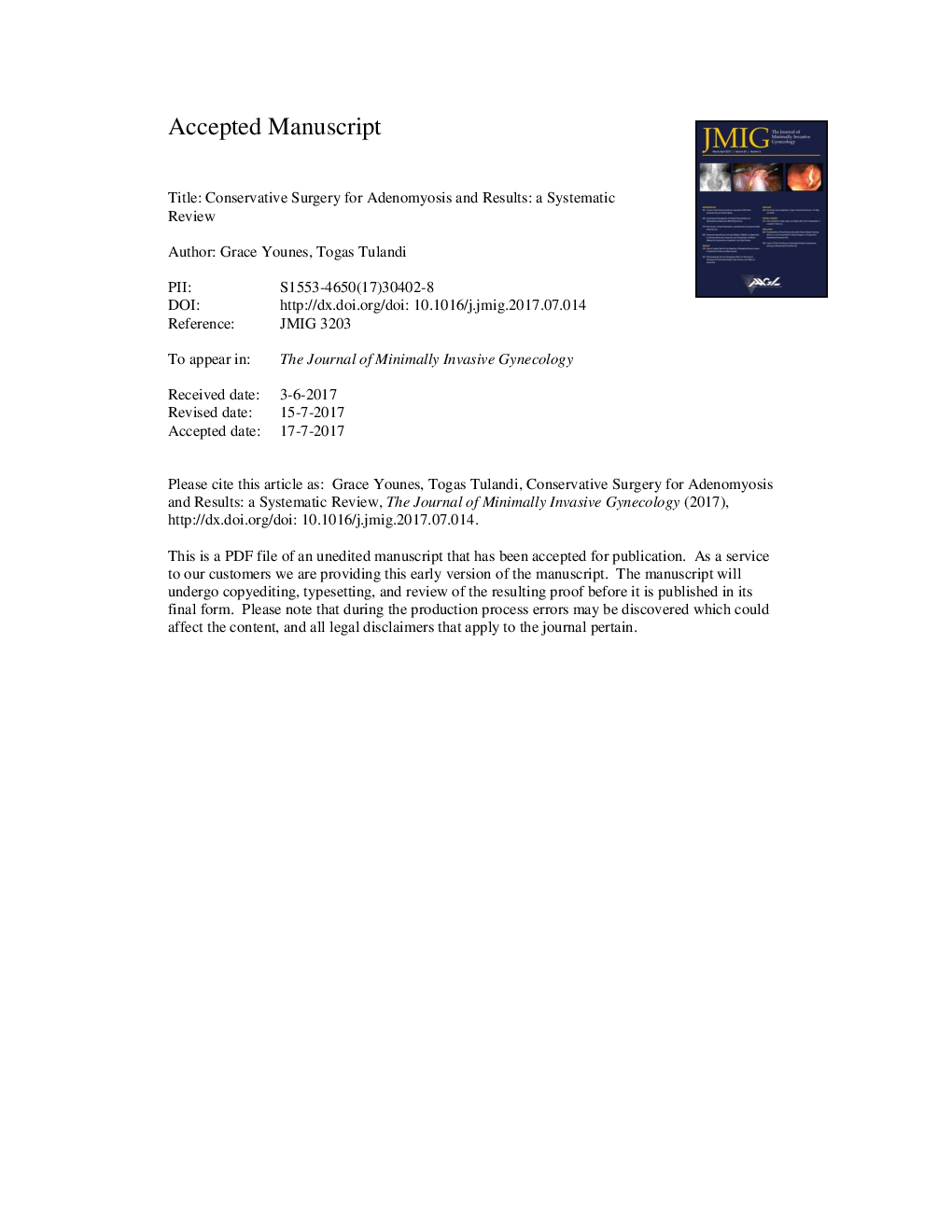| Article ID | Journal | Published Year | Pages | File Type |
|---|---|---|---|---|
| 8781368 | Journal of Minimally Invasive Gynecology | 2018 | 26 Pages |
Abstract
The traditional treatment for women with symptomatic adenomyosis is hysterectomy. However, reproductive-aged women should be managed with less invasive treatments including medical treatment. For patients who are refractory or unsuitable to long-term medical treatment or those with focal adenomyoma, conservative surgeries could be offered. The objective of our study was to review available conservative surgeries for the treatment of adenomyosis, their complications, and the rates of success and recurrence. In this systematic review we evaluated 27 studies; 10 prospective and 17 retrospective studies including a total of 1398 patients. The results showed that excision of adenomyosis is effective for symptom control such as menorrhagia and dysmenorrhea and most probably for adenomyosis-related infertility. For preserving fertility and relieving symptoms, medical treatment is usually the first choice, whereas excisional surgery could be performed for refractory adenomyosis. The results show that over three-fourths of women will experience symptom relief after conservative surgery. The pregnancy rates after conservative surgical treatment vary widely. However, three-fourths of them conceived after surgery with or without adjuvant medical treatment. Depending on the duration of follow-up, recurrence rates differ from no recurrence to almost one-half of patients. Conservative surgery for adenomyosis improves pelvic pain, abnormal uterine bleeding, and possibly fertility. The best method of surgery is yet to be seen.
Related Topics
Health Sciences
Medicine and Dentistry
Obstetrics, Gynecology and Women's Health
Authors
Grace MD, Togas MD, MHCM,
